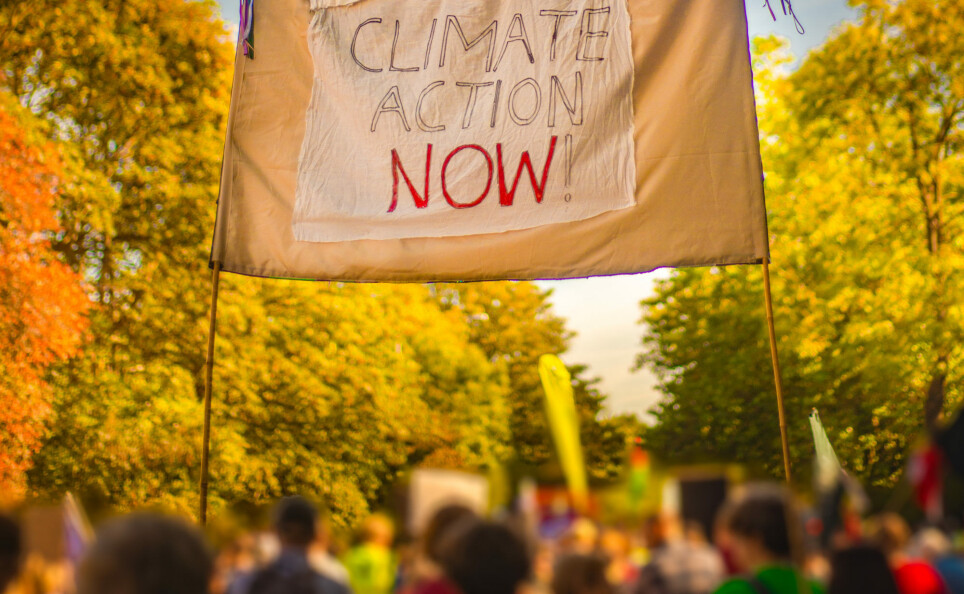THIS ARTICLE/PRESS RELEASE IS PAID FOR AND PRESENTED BY NTNU Norwegian University of Science and Technology - read more

Glasgow climate talks and the fate of the planet
Just over two months after UN Secretary-General António Guterres described a new climate report on the state of the planet as “code red for humanity”, the nations of the world have the chance to do something about it. But will they?
The pressure is on in Glasgow later this month, as 100 world leaders, including US President Joe Biden and Pope Francis, gather at the UN COP 26 climate change summit. The summit is an annual meeting of representatives of essentially every country on the globe, in what the UN calls the 'Conference of Parties' — hence COP.
But this year is a little different, and not just because of the recent IPCC report that outlined how dire the climate situation actually is. For the first time, leaders will be held to account for the pledges they made to cut emissions in 2016 under the Paris Agreement.
NTNU researchers won’t play a direct role in the COP 26 summit, but they have been active as authors and contributors to published and upcoming IPCC reports and in developing and studying ideas and technologies to help the world shift to a greener future.
Here’s a sampling of recent articles from Norwegian SciTech News so you can dig deeper:
Can we stop oil and gas production now?
Stopping oil and gas production immediately seems like a clear way to cut CO2 emissions. But it will cause bigger problems than it solves.
A quick end to oil won’t save the climate
It will be hard, but it’s not too late.
Nevertheless, we shouldn’t fool ourselves, we have to restructure our energy systems and abandon fossil fuels.
Is it too late to save the planet?
Looking to art to help motivate us
Climate change seems like such an intractable problem that people don’t want to engage in it. Art can help.
Can we mimic volcanoes and block the sun to cool the Earth?
As scary as it sounds. But if it comes to this, we need to be ready.
Blocking the sun to control global warming
New and better technologies won’t solve everything, but they can help
Six hundred NTNU researchers are crafting the low- and no-carbon energy solutions we need, including hydrogen and battery technology, wind power, carbon capture and storage, smart grids, solar energy and hydropower — plus zero emissions homes, energy systems and neighbourhoods and more.
Rapid action can help prevent the worst consequences of global warming
Every sector of society needs to change
There’s lots to be saved by using materials efficiently.
Using materials efficiently can substantially cut greenhouse gas emissions
Fossil fuels won’t disappear overnight. But we can cut the impact
Norway commits to an enormous project to make carbon capture and storage a commercial reality.
The Longship that could help save the planet
Food versus fuel. It doesn’t have to be either/or
Biofuels offer an alternative to fossil fuels, but growing them shouldn’t cut into food production. Abandoned cropland offers a good solution.
Abandoned cropland should produce biofuels
Harnessing the ocean to help with emissions cuts
The IPCC has clearly said we need to use every tool available to us to curb global warming. A new project explores how the ocean might offer some help.
Ocean-based negative emissions technology research receives prestigious funding
Doing better when it comes to consumer goods
Few people thought about global supply chains until the pandemic hit. But it turns out smart use of global supply chains can cut carbon emissions too.
Global supply chains as a way to curb carbon emissions
Finding ways to make transport greener, and telling the world about it
NTNU researchers are playing a leading role in the next IPCC report on mitigation and solutions.
New website allows data sharing for upcoming Climate Panel report
See more content from NTNU:
-
Can desert sand be used to build houses and roads?
-
This is why girls are happiest at school
-
This is what ADHD feels like for an 11-year-old girl
-
Half of all men over 60 have prostate cancer: A new AI tool could help doctors
-
New study: It may become possible to clean boats without toxins
-
Can biology reveal parental manipulation?





































